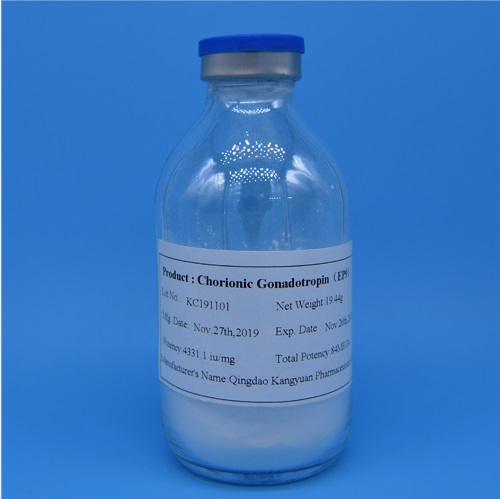Human menopausal gonadotropin (hMG) is an important hormone used in
assisted reproductive technology (ART) to stimulate ovulation in women who
struggle with infertility. This article aims to explore the significance of hMG
and its role in reproductive health, highlighting its effectiveness and benefits
in fertility treatments.
Body: Human menopausal gonadotropin (hMG) is a medication comprising a
mixture of follicle-stimulating hormone (FSH) and luteinizing hormone (LH)
extracted from the urine of postmenopausal women. In ART, hMG is administered to
women who require ovulation induction or controlled ovarian
hyperstimulation.

hMG acts similarly to the natural FSH and LH hormones in the body,
stimulating the ovaries to produce multiple follicles and promote the maturation
of eggs. This increased follicular development enhances the chances of
successful fertilization and subsequent pregnancy during ART procedures such as
in vitro fertilization (IVF) or intrauterine insemination (IUI).
One of the primary advantages of hMG is its ability to provide more
consistent hormonal stimulation compared to using FSH alone. The inclusion of LH
in hMG helps to mimic the natural hormonal profiles required for successful
ovulation and improves the quality of eggs produced. This increased follicular
response can increase the chances of successful implantation and pregnancy for
women undergoing ART.
Another benefit of hMG is its flexibility in dosage adjustment. The dosage
of hMG can be tailored to the specific needs of each patient, allowing
healthcare professionals to monitor and adjust treatment plans accordingly. This
individualized approach maximizes the chances of success while minimizing the
risk of multiple pregnancies, a potential complication of hormone therapy.
The use of hMG in ART has proven to be highly effective, with a significant
number of successful pregnancies reported worldwide. The hormone is generally
well-tolerated, and side effects, such as mild injection site reactions or
ovarian hyperstimulation syndrome, are usually minimal and temporary.
Furthermore, hMG plays a critical role in improving the outcomes of
fertility treatments for women with certain medical conditions, such as
diminished ovarian reserve or polycystic ovary syndrome. It offers a viable
solution for women struggling with infertility, providing them with hope and a
greater chance of conceiving.
Human menopausal gonadotropin (hMG) is a valuable component in assisted
reproductive technology, enabling women to overcome infertility challenges. Its
ability to stimulate follicular development, provide consistent hormonal
profiles, and offer individualized dosing makes it an effective and flexible
treatment option. With its successful track record and minimal side effects, hMG
continues to play a crucial role in helping couples achieve their dreams of
starting a family through ART.